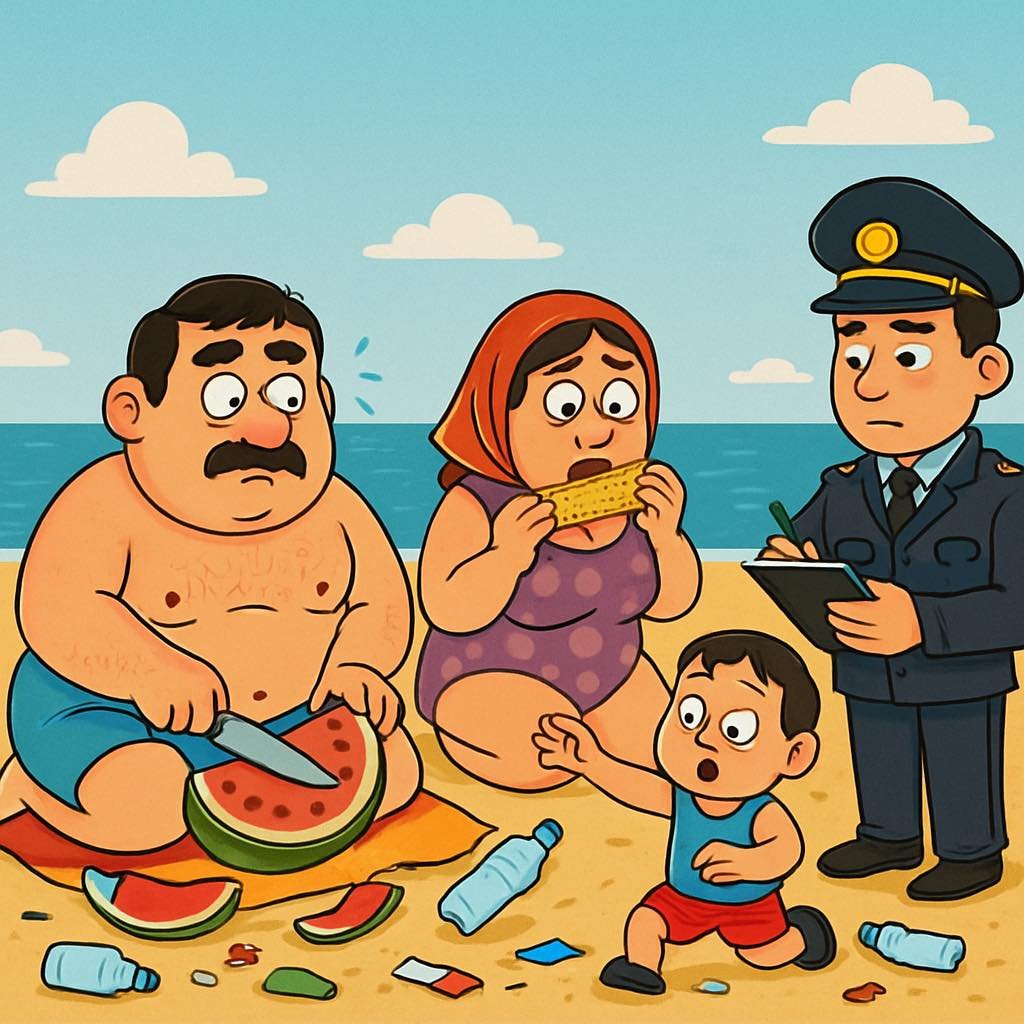Baku, July 18, 2025 — As summer temperatures soar, thousands flock to Baku’s beaches for relief and relaxation. But with the rise in visitors comes a less welcome tide — piles of trash, plastic bottles, food containers, and discarded belongings now strewn across the city’s once-pristine coastline.
From Sahil to Shikhov, scenes of overcrowding and carelessness have become the new normal. Families and large groups gather for the day, often bringing full meals, disposable grills, and coolers — yet few leave with their waste.
Locals and environmental volunteers report overflowing bins, litter buried in sand, and even abandoned furniture left along the shore. Despite clean-up efforts by city services and NGOs, the volume of waste has become overwhelming.
“We clean one section in the morning, and by evening, it looks like we were never there,” says Leyla Mammadova, a volunteer with a local environmental group. “People treat public beaches like private picnic grounds — then walk away from the mess.”
Environmental Cost and Public Health Risks
Beyond being an eyesore, the uncontrolled littering poses serious environmental threats. Plastics and food waste attract stray animals and pollute the Caspian Sea, harming marine life. Sharp objects buried in the sand also pose safety risks, especially to children.
Experts warn that unmanaged beach waste can contribute to long-term degradation of Baku’s coastal ecosystem. “If we continue on this path, our beaches will no longer be safe or attractive for recreation,” says ecologist Emin Rzayev.
A Culture of Convenience, Not Responsibility
The problem, many argue, is not just infrastructure, but attitude. While some beaches lack sufficient bins or signage, the main issue remains public behavior.
“People know littering is wrong. But they assume someone else will clean up after them,” says Sabina Aliyeva, a resident of nearby Badamdar. “It’s pure neglect.”
Social media is increasingly filled with images and videos exposing the damage — from plastic bags tangled in reeds to mounds of waste left behind after weekend gatherings. The images have sparked calls for stricter enforcement and awareness campaigns.
What’s Being Done?
The Baku City Executive Authority has promised increased patrols and more trash collection points along popular beaches. But enforcement remains patchy, and fines for littering are rarely imposed.
Some citizen groups have launched cleanup initiatives, but they say they’re fighting a losing battle without broader public support and education.
A Call to Action
With the peak of summer still ahead, residents and city officials are calling on beachgoers to take responsibility. “Enjoy the sea, enjoy the sun — but take your trash with you,” says volunteer Leyla Mammadova. “Leaving behind waste is not just disrespectful. It’s destructive.”
As Baku seeks to position itself as a clean, modern capital on the Caspian, the state of its beaches is becoming a mirror — not of the sea’s beauty, but of the public’s indifference.
Clean beaches start with clean habits. And right now, Baku’s beaches are drowning in more than just water.


